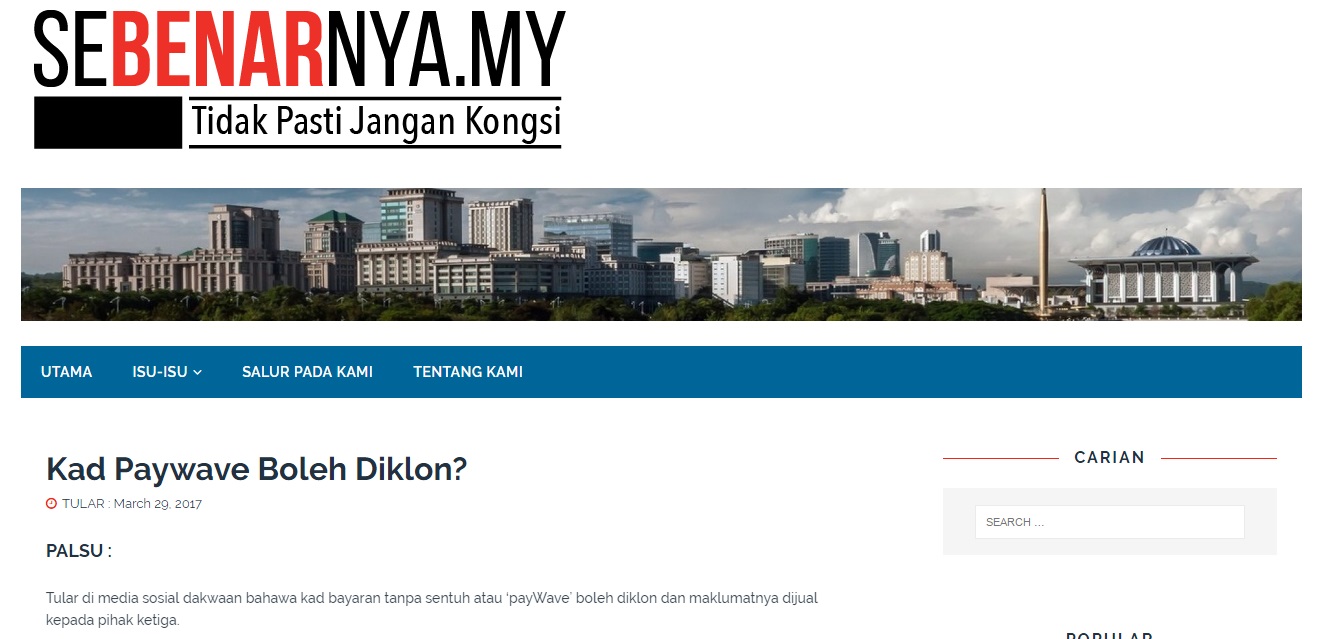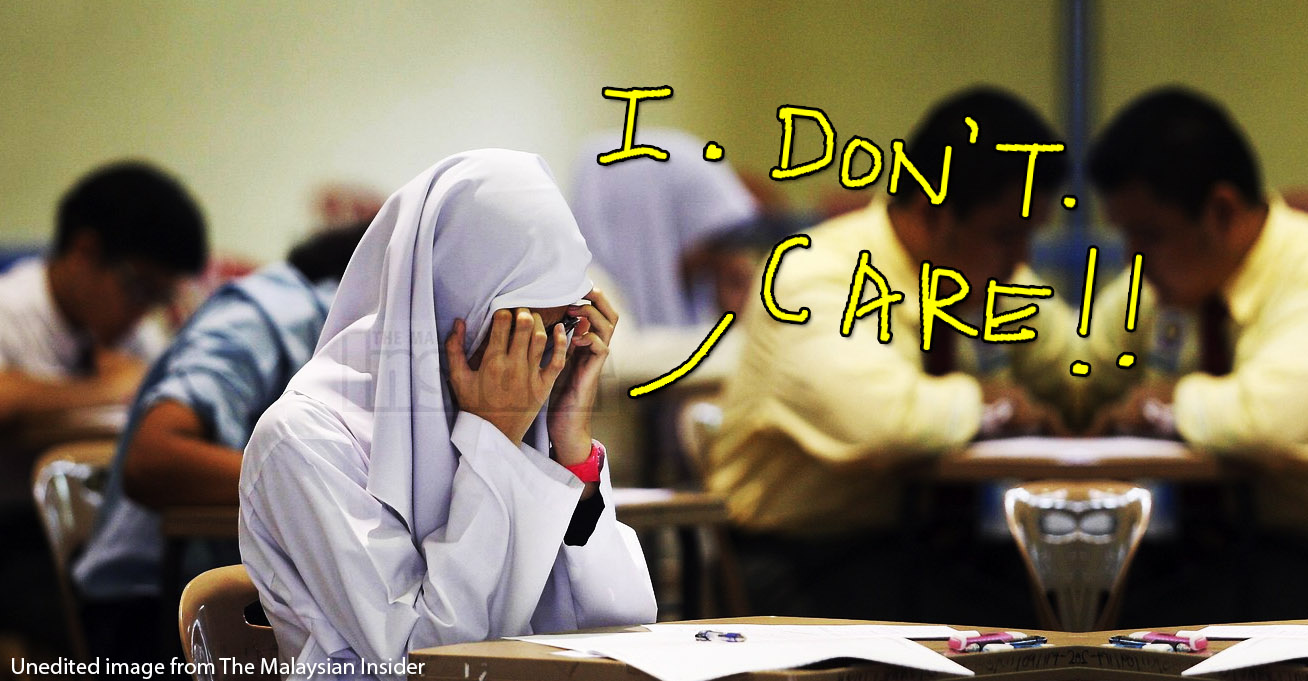The newest subject in Malaysian school might be… Facebook? Sure onot!?
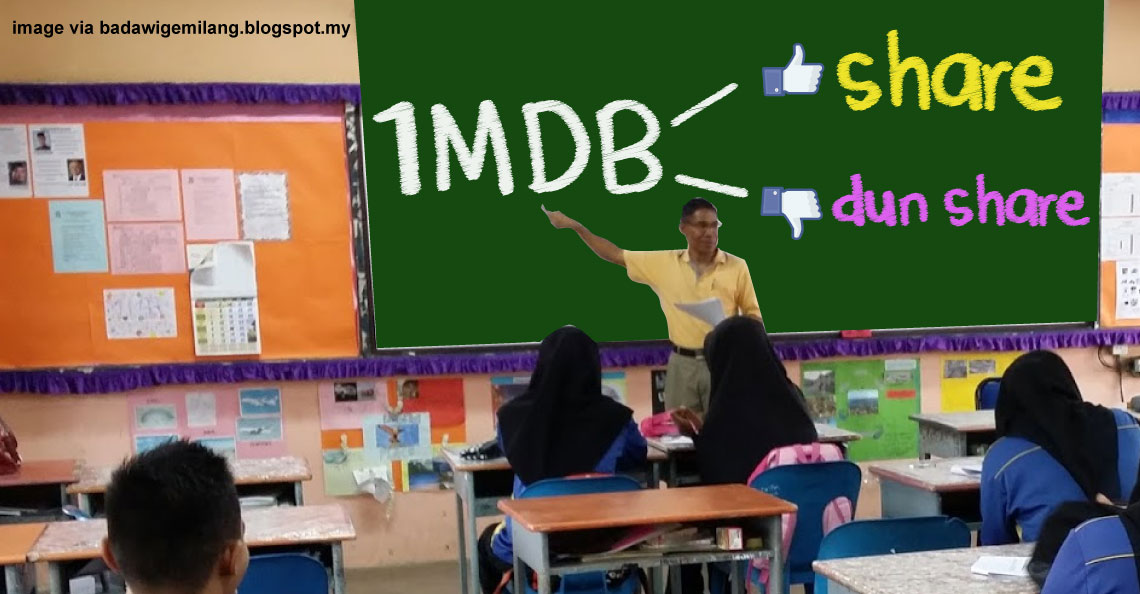
- 2.2KShares
- Facebook2.2K
- Twitter3
- LinkedIn3
- Email4
- WhatsApp7
If we remember fondly upon 2015, we might remember the event that was the Low Yat riot. In relation to the riot, 2 high profile arrests were made, one was Malaysian Armed Forces Veterans Association chief Mohd Ali Baharom for inciting racial tension, and the other was Papagomo, for spreading false news.
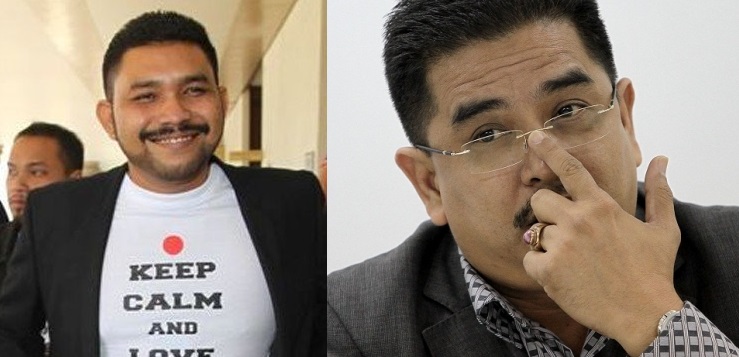
In case you didn’t know, close to 70% of Malaysians have access to the internet. Among them, 80% of them use Facebook, which actually means that more than half of Malaysians are on Facebook, and everyone knows that Facebook is faaarrr from what we call a reliable source of information.
So it’s only reasonable that Malaysians are worried about what the constant exposure of the internet could do to the young minds of our innocent children, namely PM’s aide Rizal Mansor. He recently suggested that social media skills should be taught as a school subject, citing the importance of teaching children to identify fake information from legit ones.
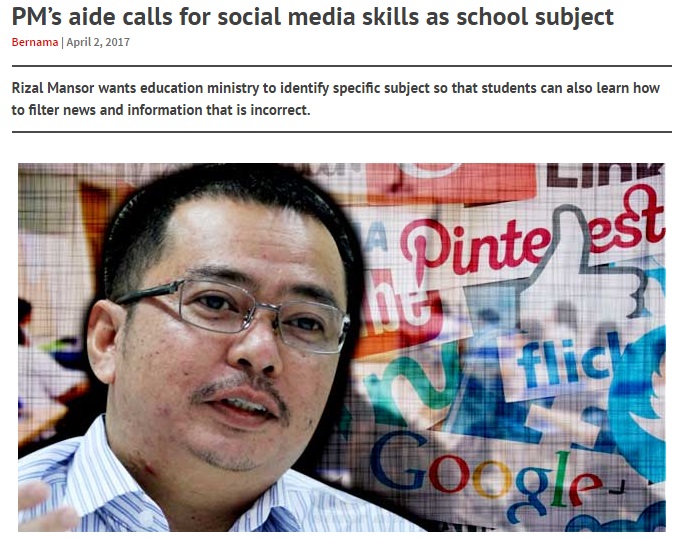
Kelas Sosial Media? What would the exams look like? What would the syllabus look like? Does anyone actually even teach such skills??
What schools can teach our kids about Social Media
Mr. Rizal Mansor isn’t the first one to realise the need to address this issue, of course. While we are most familiar with literacy in terms of writing and reading, the new age of technology requires a whole different set of skills to navigate these new and challenging waters. The social media skills Mr. Mansor wants in our schools all fall under “social media literacy“, which basically means how “good” a person is at using social media.
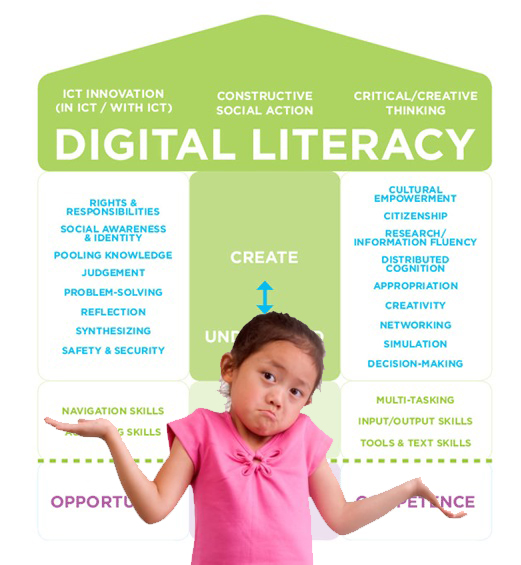
Institutions in countries like Canada, and the United States have been at work at it for quite some time. Some of these skills are pretty much the generic traits you would put in your resume, like “problem-solving“, “creativity“, and “critical thinking“, but others are also terms like “information fluency“, “rights and responsibilities” and “safety and security“.
We know all these mumbo jumbo can sound very boring, but we can’t afford to be lazy about this because social media literacy will affect us our entire lives. Thankfully for us, The Mat Sallehs were already thinking these things through. This website has plenty of resources made specially for kids, where stuff like online footprints are explained in a kid-friendly way:
If we go one step higher up the education ladder, we also found plenty of guidelines made by educational institutions for other educational institutions to draft up their own policy regarding the use of social medias, for students and staffs alike. They could stop teachers from using Twitter or Facebook specifically, or disallow personal communications with individual students through social media. It’s actually entirely up to the school itself.
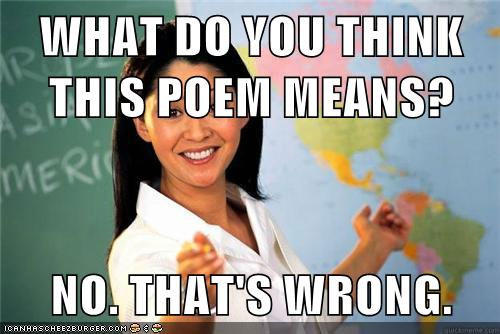
But the thing we actually kept stumbling upon were resources to guide teachers on how to use social media in their lessons. So not only do they want to teach kids to use social media, they also want to encourage the teachers to start using it as well.
WHY would they want students to be twitting and Facebooking in class??? Because using social media in classrooms is actually getting students more interested in learning “boring things”, like WRITING (◕‿◕✿). Occasionally, the gomen steps in and have their say as well. Like the time the state of California forced websites to provide an “eraser button” to all users that are 18 years old and below to remove stuff they posted.
“Kids and teens frequently self-reveal before they self-reflect. In today’s digital age, mistakes can stay with and haunt kids for their entire life.” Jim Steyer, CEO of Common Sense Media, in an interview with The Huffington Post.
So there seems to be some agreement on the need to teach children how to Facebook responsibly, not only to prevent them from being punished for their lack of social media literacy, but also to better their interest in learning.
But then, grownups aren’t really that great at internet-ing either
Information like the ones in the adorable video above wouldn’t just be useful for little kids. We could think of a few aunties, uncles, and millennials we know personally that could learn a thing or two from it.
And some might be thinking: What’s the big deal? It’s just a harmless “share” button. Probably we’ll just feel embarrassed for awhile and we’ll all laugh about it later right? Heh Heh. Not. Really. There are cases of medical students getting expelled for taking selfies in hospitals while on duty, and even this doctor that’s being considered for expulsion because he took a selfie… during surgery.
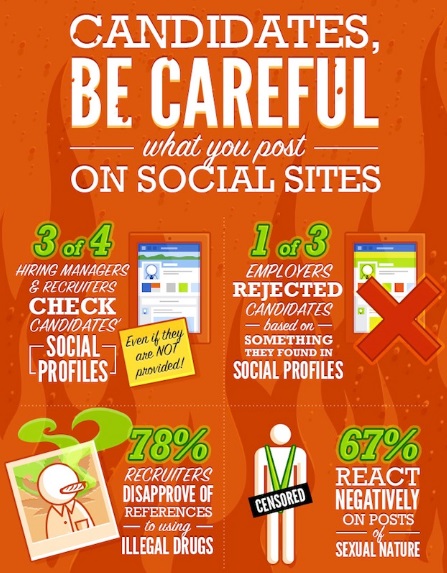
Not only that, anything you post online can even hurt your chances of being employed, because a lot of hiring and job-hunting is mostly done through online platforms now, which makes it easier to search your online history and dig up those things you shared that you thought were harmless.
To highlight the problem even further, Malaysians are STILL constantly falling for all kinds of scam! From the phone scams, to the parcel scams, and the “work from home data entry” job scams and of course, the infamous LOVE scams. So the problem doesn’t end with just fake news.

Malaysians as a whole need this, cos we apparently suck at it
Malaysians have a terrible track record of identifying real and fake news. And worse still, the last time we checked, we found that more than 30 Malaysians kena scammed online, DAILY.
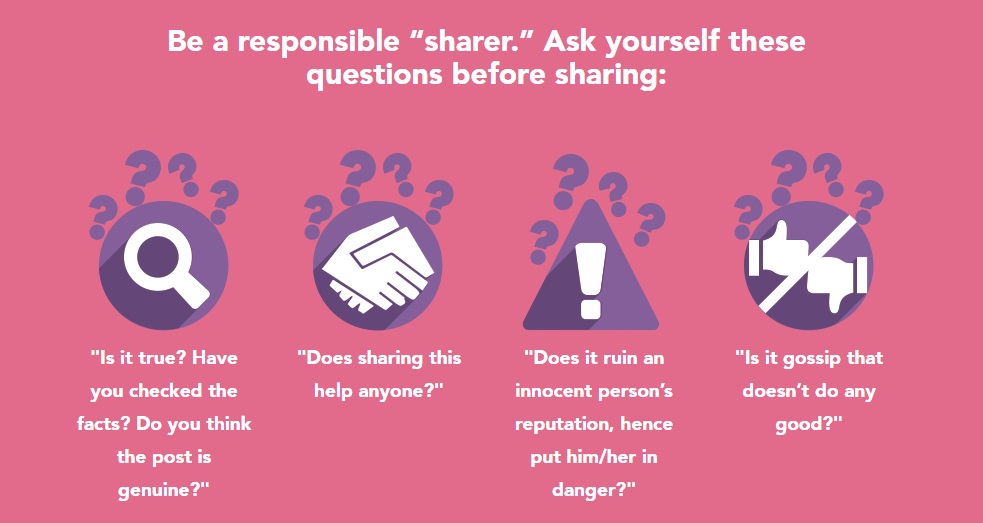
But if you think that Malaysia should be like 100 steps behind in all of this, we’re glad to tell you that you’re WRONG. In fact, one government agency has been trying to teach kids to surf smart, and they’ve been trying since 2012! The Malaysian Communications and Multimedia Commission (MCMC, a.k.a the ones that arrests people for posting bad stuff online) has been running campaigns to educate kids for a quite some time now.
They even have a section for adults in the website, which we covered extensively here. But until now, not a lot of people have heard about it (or read (☞ಠ_ಠ)☞ the article we wrote ). Recently, they even announced that they’re shifting their attention from the kids to the gullible adults.
“A lot of online abuses come from them; false news, gambling, revenge porn. These are adult activities, not by children.” MCMC network security and enforcement chief officer Zulkarnain Mohd Yasin, in an interview with The Star.
Last month, the MCMC launched their very own fact checking website, called sebenarnya.my, that puts up short posts to verify any local news they can get their hands on. But hah! Who would trust a gomen website to “fact check” anything, sure bias la right? Well, their verification IS done by listing information from different local news sources, so seems quiet legit… for now. Currently, the website is only available in BM, but it’s good to know that our country sees a need to combat this problem.
In the end, it’s really up to us to be responsible with what we post online. Sometimes we have to verify through sources that we usually find trustworthy, and just be aware about the authenticity of what gets shared around. Some fake news might just be a harmless prank, but others like the incident of Low Yat actually puts people’s lives in danger. Either way we shouldn’t underestimate it’s power.
- 2.2KShares
- Facebook2.2K
- Twitter3
- LinkedIn3
- Email4
- WhatsApp7

